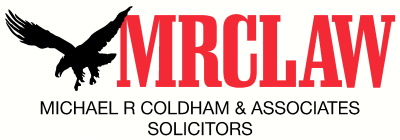So, you have found a business and you have your heart set on buying it. Congratulations – that’s great news!
However, before you rush off to hand over the purchase price, you need to be aware of some important steps to consider.
Contents
Step 1 – Is this business right for you?
Not everyone is cut out to be the boss. Running a business can be stressful – and not always as financially rewarding as expected.
On the other hand, some people thrive on being the one calling the shots.
Decide if this is the right business for you.
If the answer is a resounding ‘yes’, proceed carefully and with your eyes wide open about the potential pitfalls that buying a business can involve.
Step 2 – Do your due diligence
When you buy a business, it is very much a case of ‘buyer beware’.
It is essential to carry out careful due diligence before entering into an agreement to purchase a business.
You need a clear understanding of exactly what you are getting (and sometimes not getting) before you hand over any money.
Above all, investigate whether all the claims the vendor is making about the business are true.
What should your due diligence include?
- Whether income is as high as the vendor claims
- The value and condition of equipment or stock
- Risks involved in running the business
Premises check
Find out whether the business premises are leased or owned.
If leased, review the lease terms, confirm you can take it over, and understand how long remains.
Financial record review
Engage a qualified expert to carefully assess the business’s accounts and financial reports.
This is especially important if the current owner is claiming the business is more profitable than it looks on paper.
Franchise purchase
If you’re buying a franchise business, extra due diligence is needed to review franchise agreements, obligations, and fees.
See our business law services for support during due diligence.
Step 3 – What workers’ entitlements may be affected?
An important part of the due diligence process is identifying any employee entitlements that may transfer with the business.
Key questions to ask:
- Will staff come across to you as their new employer?
- What are their existing annual, long service, or other leave entitlements?
- Will accrued benefits be paid by the seller or deducted from the sale price?
- Are any employees on workers’ compensation or extended sick leave?
- If on sick leave – is it work-related (e.g., stress claim)?
- What’s the business’s workplace safety history?
- Are there existing enterprise or workplace agreements?
If employees are transferring to you, clarify with the seller who is responsible for any entitlements.
You don’t want to inherit large accrued obligations unless they’re reflected in the purchase price.
Step 4 – Get independent professional advice
You wouldn’t buy a house without getting a builder to check it. Buying a business is no different – and can be more expensive.
It’s unlikely you’ll identify every pitfall on your own.
Seek legal advice early – before signing a contract or handing over any money. It could save you stress and thousands of dollars.
You’ll likely need finance. Your lender may even require you to get independent financial advice.
It’s always a good idea to have a professional review the business’s financials before proceeding.
Contact Our Business Lawyers
This information is general only. We strongly recommend seeking assistance from a qualified professional before buying a business.
If you or someone you know wants more information or legal advice, please call 03 5747 8251 or email [email protected].

